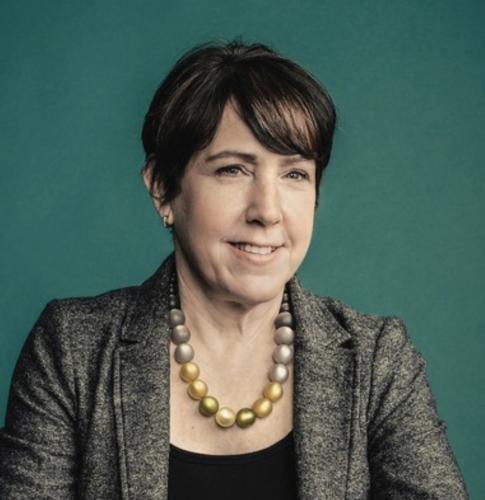When the Center for American Women and Politics was created 50 years ago, its founders were told it wasn’t a subject worth studying; there were only a handful of women serving in office, so what was there to research? These critics aren’t just wrong in retrospect. They were wrong at the time. In this interactive timeline, which includes both developments at CAWP and in American politics broadly, travel through the past five decades as barrier after barrier is torn down, and watch CAWP grow into the premier institution in the country devoted to women’s political engagement while intersecting with and mutually supporting American women as they seized their own political destiny.
1971
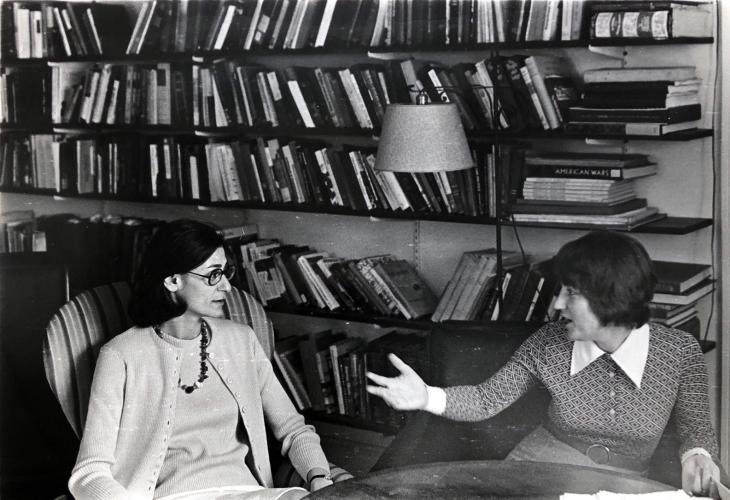
Ida Schmertz (l) and Ruth B. Mandel.
Source: Center for American Women and Politics.
The Center for American Women and Politics (CAWP) is established in July 1971 at Rutgers University’s Eagleton Institute of Politics with a grant from the Ford Foundation (subsequently renewed for a total of seven years of general support). Its initial co-directors are Dr. Ruth B. Mandel and Ida F.S. Schmertz.
1972
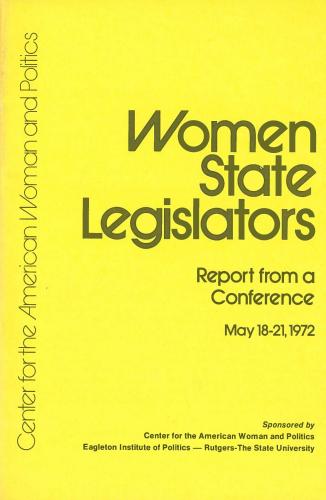
CAWP convenes the historic first national gathering of elected women, the Conference for Women State Legislators, in May 1972. Funded with a grant from the Carnegie Corporation of New York and held in the Pocono Mountains, the conference focuses on the backgrounds, attitudes and experiences of women elected to state legislatures. The meeting becomes the basis for political scientist Jeane Kirkpatrick’s Political Woman (Basic Books, 1974), a landmark book commissioned by CAWP.
1973
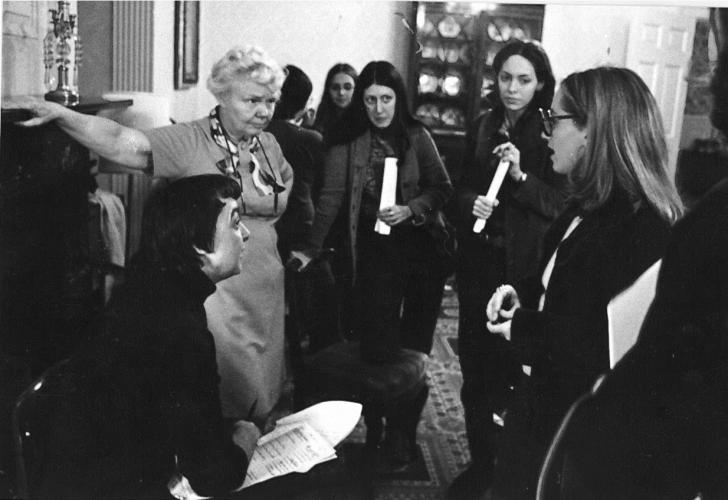
State Representative Audrey Beck (D-CT) and State Senator Louise Connor (R-DE) speak to Rutgers undergraduates. Source: Center for American Women and Politics.
CAWP pilots The Visiting Program in Practical Politics, an experimental model that brings a bipartisan team of two women state legislators, State Representative Audrey Beck (D-CT) and State Senator Louise Connor (R-DE), to campus as politicians in residence to teach an undergraduate course.
1974
In 1974 and again in 1976, with the goal of stimulating research about the unexplored subject of women’s political participation, CAWP announced national competitions to award Florence Eagleton Grants to scholars conducting their own research projects. The first round of these important awards, all funded by the Ford Foundation, provided six grantees with the means to explore the nature and political impact of women’s voluntary activities. The second round supported six scholars studying women and local government. These projects resulted in a variety of influential publications and promoted a network of scholars across the country who continue to explore the new research field of women and politics.
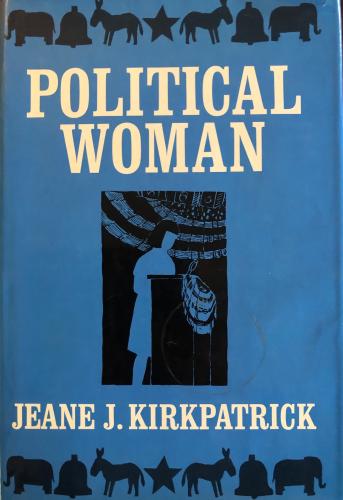
Political Woman (Basic Books, 1974) by Jeane J. Kirkpatrick is published. It is the first study of U.S. women in elective office, and was commissioned by CAWP in conjunction with its 1972 Conference for Women State Legislators.
1975
CAWP establishes the National Information Bank on Women in Public Office in 1975 to serve as a clearinghouse for information about women officeholders. The Center conducts the first national census and survey of women serving in federal, state, and local offices, generating the first accurate numbers of women officeholders at various levels. This begins CAWP’s role as the most trusted resource about women in U.S. politics. For decades, CAWP provides both current numbers and their historical context including firsts, records, and trends to scholars, media representatives, and others who want or need the information.
1976
In 1974 and again in 1976, with the goal of stimulating research about the unexplored subject of women’s political participation, CAWP announced national competitions to award Florence Eagleton Grants to scholars conducting their own research projects. The first round of these important awards, all funded by the Ford Foundation, provided six grantees with the means to explore the nature and political impact of women’s voluntary activities. The second round supported six scholars studying women and local government. These projects resulted in a variety of influential publications and promoted a network of scholars across the country who continue to explore the new research field of women and politics.
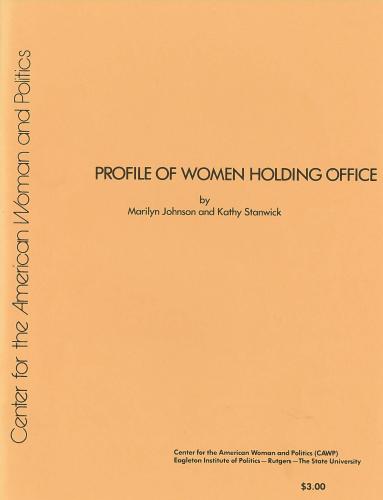
CAWP publishes a monograph, Profile of Women Holding Office, as a reprint from Women in Public Office, analyzing data from 3,298 respondents to the first-ever nationwide survey of elected women.
1977
CAWP publishes The Political Participation of Women in the United States: A Selected Bibliography 1950-1976 (Scarecrow Press, 1977), containing citations for published and unpublished writings and work in progress on American women’s participation at mass and elite levels. With more than 1,500 entries, the bibliography reflects a growing volume of scholarly research on women in politics.
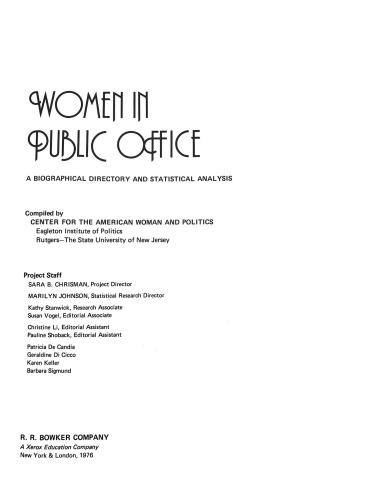
CAWP publishes the first of two editions of Women in Public Office: A Biographical Directory and Statistical Analysis (Scarecrow Press, 1976 and 1978). These comprehensive directories make national information about women officeholders publicly available for the first time.
1978
CAWP, the National Women’s Education Fund, and Wells College work with college presidents and administrative leaders to design a set of programs suited to women’s colleges. Under a grant from the Carnegie Corporation of New York, they establish the Public Leadership Education Network (PLEN) and a national consortium to share the innovative programming.
CAWP receives grants from the U.S. Department of Housing and Urban Development (HUD) to fund work focused on women municipal officials, including a study of women in municipal management and an analysis of the development of organizations of women public officials. With this funding, CAWP conducts skill-building workshops at meetings of the National League of Cities, the International City Management Association, and other organizations of government officials.
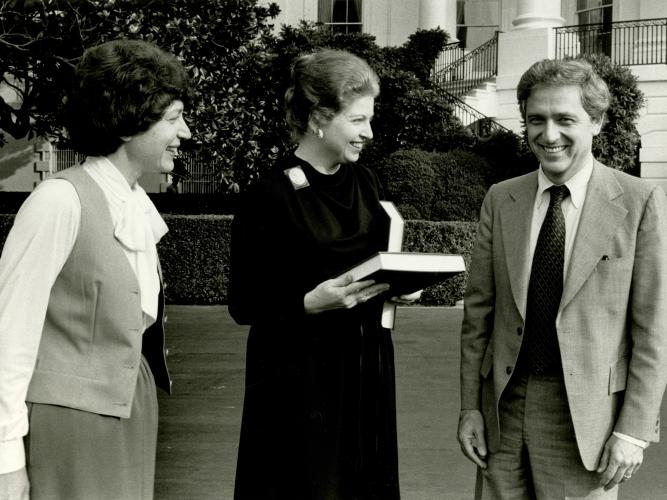
CAWP director Ruth B. Mandel and Rutgers president Edward J. Bloustein present CAWP's Women in Public Office directory (2nd edition) to Sarah Weddington, Assistant to President Jimmy Carter, on the White House Lawn, 1978. Source: Center for American Women and Politics.
CAWP publishes the second of two editions of Women in Public Office: A Biographical Directory and Statistical Analysis (Scarecrow Press, 1976 and 1978). These are the first, comprehensive, publicly available directories of women officeholders in the United States.
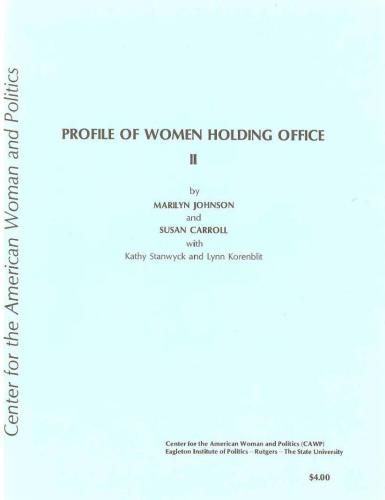
CAWP publishes Profile of Women Holding Office II as a reprint from the second edition of Women in Public Office. Going beyond the original Profile published in 1976, this monograph analyzes a more expansive survey including data on women officeholders serving in 1977, a comparison sample of male officeholders, and a sample of former women officeholders. It examines personal background, political experience, issue orientations, perceptions about women in politics, and political ambition.
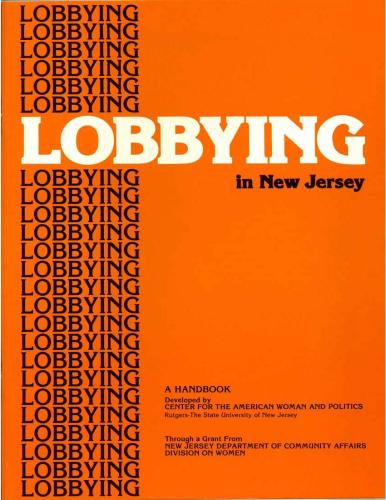
With a grant from the New Jersey Division on Women, CAWP publishes Lobbying in New Jersey by Nancy H. Becker. The instructional handbook describes the process of lobbying within a state legislative framework, listing resources from that time necessary to plan and carry out an effective lobbying campaign and explaining the legal requirements surrounding advocacy when the handbook was written. It is one of CAWP's many research and programmatic efforts to advance women's political status in its home state.
1979
Working with a group of New Jersey elected women, CAWP helps establish the New Jersey Association for Elected Women Officials. The bipartisan statewide organization undertakes education, information-sharing, and mutual support projects, reaching women officeholders across levels of government. While this organization no longer exists, it is the forerunner of New Jersey Women in Municipal Government, a committee established and managed by the New Jersey State League of Municipalities.
1980
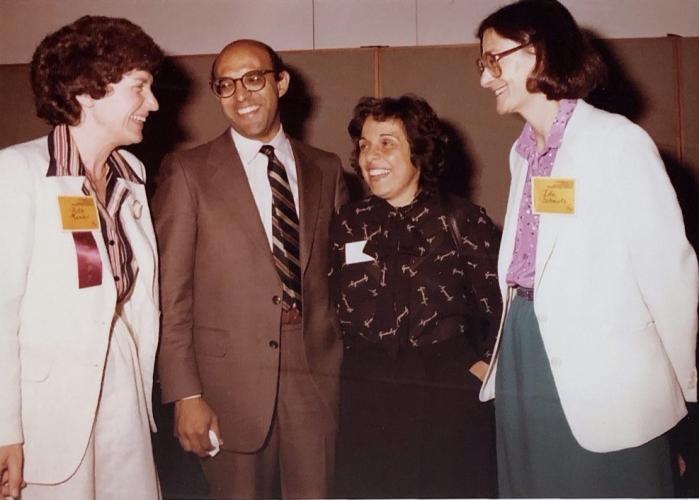
CAWP co-directors Ruth B. Mandel (L) and Ida Schmertz (R) with Donna Shalala (second from R), assistant secretary for policy development and research at the US Department of Housing and Urban Development. (Man is unidentified.) Source: Center for American Women and Politics.
As part of its grant from the U.S. Department of Housing and Urban Development (HUD), CAWP hosts a Conference for Leaders of Organizations of Women Public Officials in Washington, DC. Leaders of Organizations of Women Public Officials is a report from that meeting. CAWP also publishes the Directory of Organizations of Women Public Officials, the first known compilation of its kind.
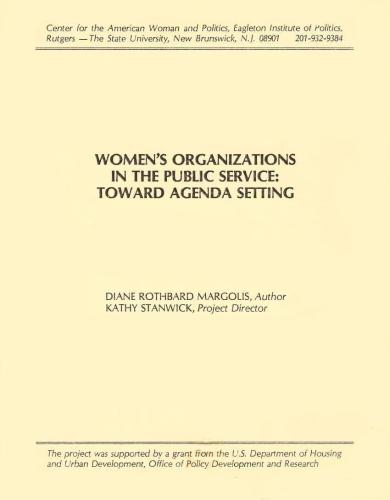
Drawing from observations during meetings and conferences of women's organizations as well as interviews with women leaders around the country between 1978 and 1979, CAWP publishes Women's Organizations in the Public Service: Toward Agenda Setting. This report identifies organizations of women public officials across the country and examines their goals and agendas, describing the founding of these organizations, their structures, their relationships with parent organizations, their reasons for forming, and their programs.
1981
CAWP receives a grant from the Charles H. Revson Foundation to study women's routes of entry into political office. CAWP surveys and confers with women and men public leaders across the country to identify effective channels and strategies for increasing the numbers of women officeholders.
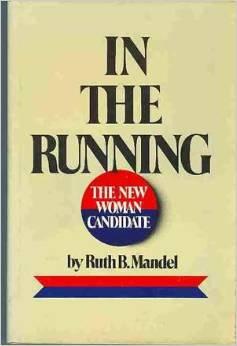
In the Running: The New Woman Candidate (Ticknor and Fields 1981; paperback Beacon Press, 1983), by CAWP’s director Ruth B. Mandel, is published. The product of research begun in 1976 with stories collected by a team of journalists working on the project, it describes the emergence of women as candidates for elective office in the United States in the 1970s.
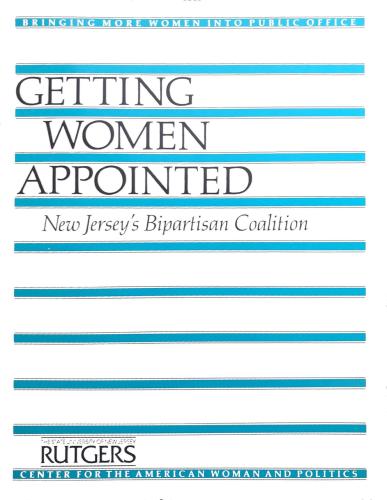
As part of the grant from the Revson Foundation, CAWP brings together twenty elected women, women political strategists, leaders of major women's organizations and women holding or who have held cabinet positions in New Jersey. Participants discuss strategies for ensuring that women would be appointed to key posts in 1982 by the state's newly elected governor. At this meeting, the New Jersey Bipartisan Coalition for Women’s Appointments (BCWA) is formed. Getting Women Appointed: New Jersey's Bipartisan Coalition, published two years later as part of the Women Make a Difference series, is a report of BCWA’s formation, accomplishments, and future plans. BCWA continues its efforts to ensure the placement of women in key positions throughout state government today. BCWA provides newly elected governors with a “talent bank” of resumes from New Jersey women interested in appointments. Other states have adopted the BCWA model.
1982
As part of the 1981 Revson Foundation grant, CAWP convenes a small group of women appointed to high-level federal positions by President Reagan. At the session, these women candidly describe their political backgrounds and experiences and discussed how they received their appointments.
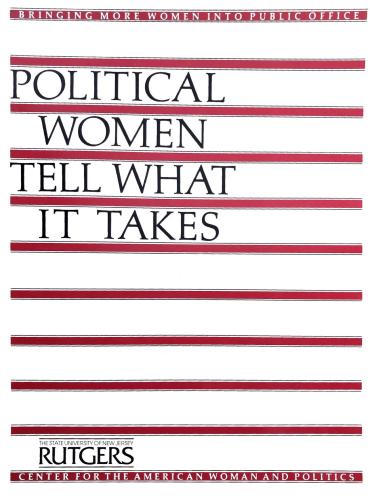
As part of the Revson Foundation grant, CAWP convenes three state-based meetings (Minnesota, Sacramento, CA and Los Angeles, CA) of women elected and appointed officials, women candidates and heads of women’s organizations to discuss what factors facilitate or hinder women’s entry in public office with major emphasis on political parties and candidate recruitment. Political Women Tell What It Takes, published the following year as part of the Women Make a Difference series, is a report of those meetings.

As part of the Revson Foundation grant, CAWP convenes the first national meeting about women’s Political Action Committees (PACs). CAWP had identified fundraising as one of the key challenges facing women candidates. In response, CAWP brings together the earliest PACs that had formed at the state and national level to support women running for office. Representatives from 16 PACs across the country gather to share best practices and to learn from each other how best to support women candidates and grow their numbers. Women's PACs, published the next year as part of the Women Make a Difference series, is a report of the meeting.
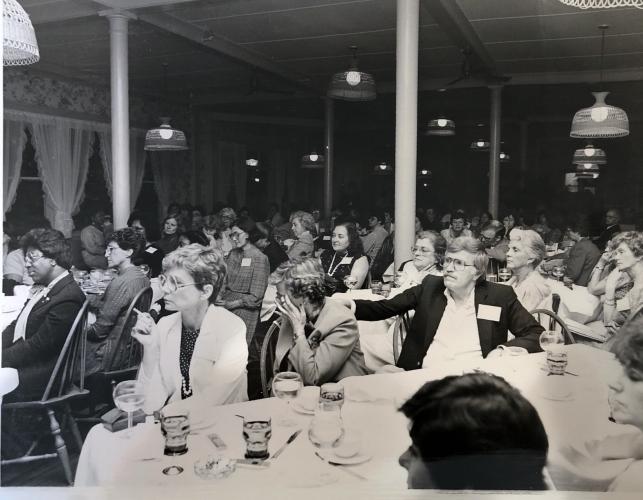
Participants at the 1982 Conference for Women State Legislators. Source: Center for American Women and Politics.
CAWP holds a tenth anniversary Conference for Women State Legislators on Cape Cod. Like the first conference, it is supported by the Carnegie Corporation of New York. The conference focuses on women’s legislative caucuses and the impact of public policies on women. Major speakers include former Congresswoman Martha Griffiths (D-MI), then former chair of the EEOC and future congressional delegate from the District of Columbia Eleanor Holmes Norton, and Congresswoman Marge Roukema (R-NJ).
1983
“Black Women’s Routes to Elective Office: An Exploratory Essay” is published as part of Women's Routes to Public Office. This analysis, made possible by oversampling African American women officeholders, is one of the first focusing on Black women’s pathways to elective office.
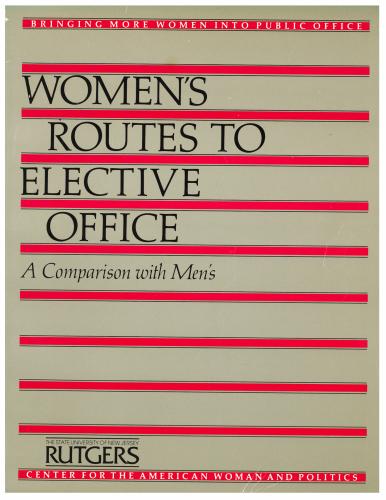
Women's Routes to Elective Office: A Comparison with Men is published, continuing CAWP's pioneering research on women serving in elective office begun with the 1975 and 1977 surveys of women officeholders. As the first study to survey national samples of women and men holding office, this research compares women's and men's pathways into public office.
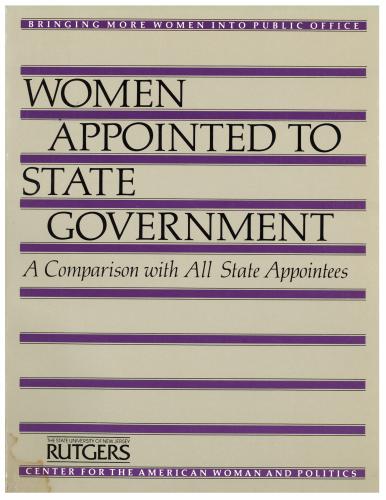
Women Appointed to the Carter Administration: A Comparison with Men and Women Appointed to State Government: A Comparison with All State Appointees are published, expanding CAWP's research into the appointed realm. Based on analysis of telephone surveys with high-level appointees at federal and state levels, these studies are the first to profile women serving in top appointive positions.
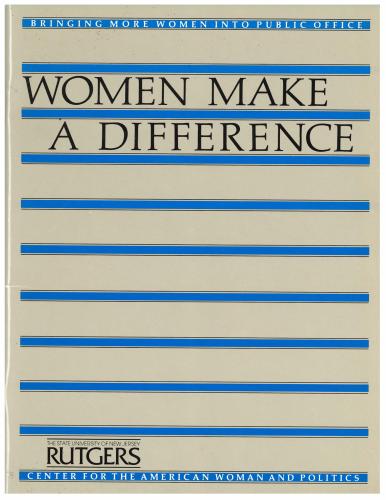
CAWP releases Women Make A Difference, a report of highlights from a publications series entitled Bringing More Women into Public Office, the first Revson Foundation-funded series. Reports in the series include:
- Women Appointed to the Carter Administration: A Comparison with Men
- Women Appointed to State Government: A Comparison with All State Appointees
- Women’s Routes to Elective Office: A Comparison with Men’s
- Political Women Tell What it Takes
- Women’s PACs
- Elected Women Organize: Statewide Associations
- Getting Women Appointed: New Jersey's Bipartisan Coalition

L to R: Assemblywoman Mario Bergeson (CA); CAWP director Ruth B. Mandel; Vice President George H.W. Bush; Rutgers University President Edward Bloustein; and Assemblywoman Sunny Mojonnier (CA). Source: Center for American Women and Politics.
CAWP’s small, invitational 1982 Conference for Women State Legislators creates tremendous demand for a larger national gathering. In response, CAWP convenes the first national Forum for Women State Legislators in 1983 at the Hotel del Coronado near San Diego. It is the largest meeting of elected women to date; all 991 women state legislators are invited to attend and more than a third of them come, along with other women officeholders, party and organization leaders, women from the business community, scholars, and journalists. Close to 1,000 people participated. Three themes dominated the meeting:
- Increasing the numbers and influence of women in public office, especially in state legislatures
- Moving women into key legislative leadership roles
- Examining possible differences between women’s and men’s responses to public policy issues.
Once again, funding comes from the Carnegie Corporation of New York and from corporations, foundations, and unions.
1984
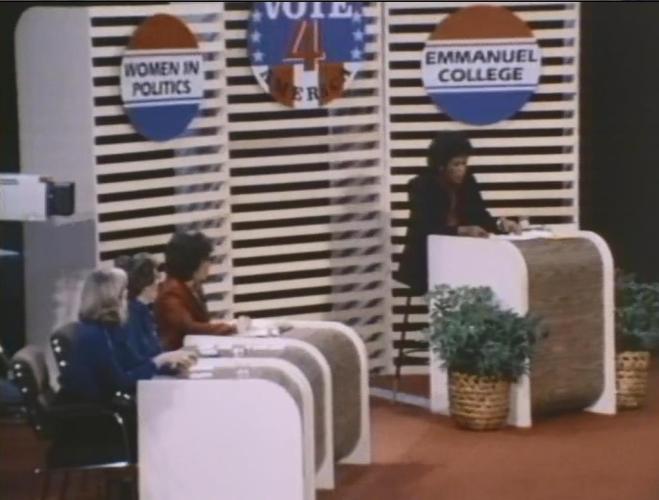
CAWP produces a 60-minute documentary film, Not One of the Boys, which airs nationally on the PBS series Frontline with a viewership of nearly six million. Narrated by Judy Woodruff, it examines 1984 as both an ordinary and extraordinary moment for women in American politics, considering the progress women were making and the obstacles they were encountering after more than a decade of increased involvement in political life.
1985
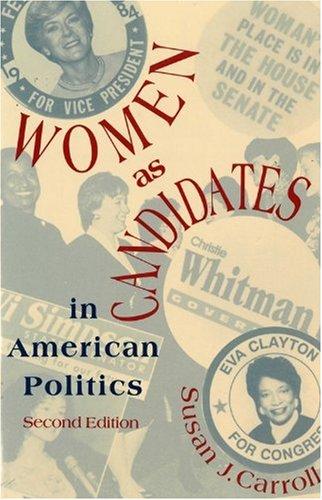
Women as Candidates in American Politics (Indiana University Press, by CAWP Senior Scholar Susan J. Carroll is published. Based on the first and still only (as of 2021) nationwide survey of women running for office, this study examines political parties' recruitment of women candidates, the factors that affect the outcomes of women's primary election campaigns, officeholding ambitions of women candidates, and women candidates' views on women's issues.
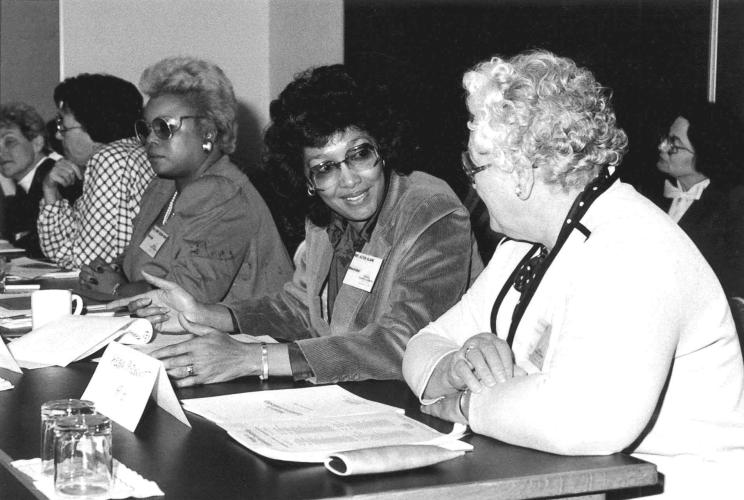
Participants at the 1985 Women in Legislative Leadership meeting. Source: Center for American Women and Politics.
As increasing numbers of women in state legislatures gain the seniority and influence to occupy either committee chairs or slots in the majority or minority leadership, CAWP convenes a first ever meeting of Women in Legislative Leadership, to ask these women about the special opportunities and challenges that leadership roles entail. Sixty-nine women representing twenty-nine states came together for four days to gain new perspectives on public sector leadership, examine their own leadership styles, and learn from each other ways that they can become more effective leaders. Speakers included Vermont Governor Madeleine Kunin, former Congresswoman Shirley Chisholm and Congresswoman Jan Meyers.
1986
CAWP receives a second major grant from the Charles H. Revson Foundation to conduct extensive research and commission scholars elsewhere to explore various aspects of the question of impact of women in public office.
1987
CAWP convenes the second national Forum for Women State Legislators at the Hotel del Coronado near San Diego. The Forum featured four days of speakers and sessions addressing a wide range of issues of special concern to women legislators across the country. Key themes included: increasing the presence and power of women in politics and government; the ongoing development of women’s legislative caucuses and organizations; and whether and how women in government make a difference in public policies, governing institutions, and political processes. Major speakers included: Donna Brazile, Celinda Lake, Senator Nancy Kassebaum, Former Congresswomen Shirley Chisholm and Bella Abzug, Cokie Roberts, Polly Baca, Carole Simpson and then-Congresswomen Helen Bentley, Barbara Boxer, Nancy Johnson, Barbara Kennelly, Constance Morella, Olympia Snowe and Pat Schroeder.
1989
With funding from the Ford Foundation, CAWP convenes its first meeting of leaders of more than a dozen national organizations of women public officials, both elected and appointed, at the state and local level to better understand their policy and leadership development priorities.
CAWP convenes its first Forum for Newly Elected Women State Legislators. The Forum brings together women serving in their first term in the legislature to learn from veteran women legislators in order to increase their political clout within their states. Legislators discuss how to work effectively with the executive branch, strategies for achieving legislative leadership positions, and how to successfully move a policy agenda forward.
1990
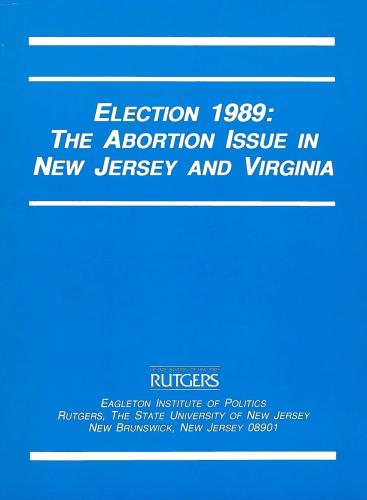
The Eagleton Institute of Politics publishes Election 1989: The Abortion Issue in New Jersey and Virginia. New Jersey and Virginia were the first two states to hold gubernatorial and legislative elections following the Supreme Court's decision in Webster v. Reproductive Health Services, which gave states greater freedom to set abortion policy. The report weaves together information provided by voters, candidates, and activists to analyze whether and how the abortion issues played a role in the two states’ elections.
1991
CAWP convenes its second meeting of leaders of national organizations of women public officials. The agenda focused on how to strengthen and grow these organizations as well as how they can work together across levels of office in order to increase the impact of women officeholders.

CAWP establishes NEW Leadership® (National Education for Women’s Leadership) in 1991 as a series of annual national summer leadership institutes for college women. After the initial grant from the W.K. Kellogg Foundation ends, CAWP shifts from a single national program based at CAWP to state-based institutes at colleges and universities around the country that serve students from each state or region.
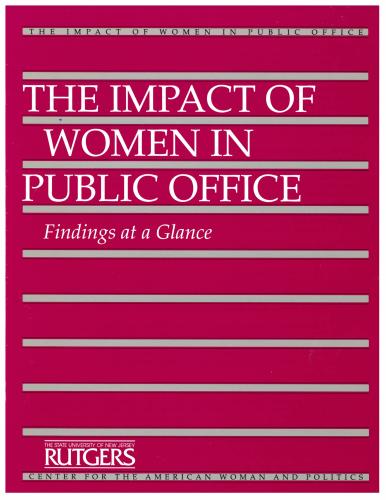
CAWP releases The Impact of Women in Public Office, a series of three reports of research conducted under the second grant from the Revson Foundation. Monographs in the series include:
- Reshaping the Agenda: Women in State Legislatures, which presents findings from telephone surveys of women and men serving in state legislatures across the country, revealing gender differences in policy attitudes, legislative priorities, and work on women’s rights legislation.
- Gender and Policymaking: Studies of Women in Office, which presents findings from eleven small-scale research projects conducted by scholars across the country focusing on how women serving in a variety of political offices make a difference.
- The Impact of Women in Public Office: An Overview, which highlights major findings from the other two reports.
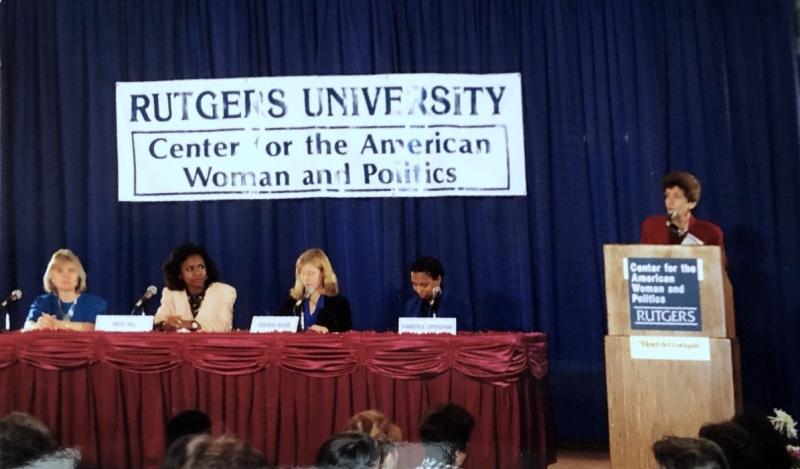
Panel at the 1991 Forum for Women State Legislators. From L to R: Susan Deller Ross, Anita Hill, Kimberle Crenshaw, Deborah Rhode, and Ruth B. Mandel. Source:Center for American Women and Politics.
CAWP convenes the third national Forum for Women State Legislators at the Hotel del Coronado near San Diego. The 1991 Forum, held shortly after the contentious Senate hearings on the Supreme Court nomination of Clarence Thomas, draws national attention with a roundtable on sexual harassment and public policy featuring Professor Anita Hill and other law professors. This was Hill’s first public appearance after the Senate hearings.
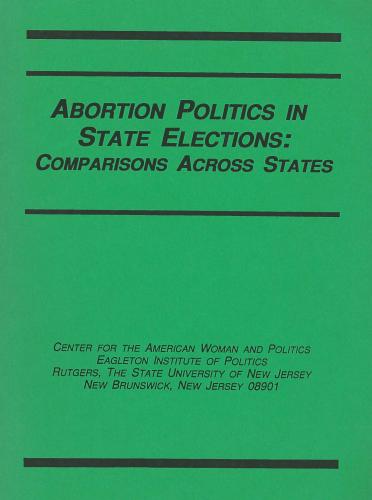
CAWP publishes Abortion Politics in State Elections: Comparisons Across States by Debra L. Dodson, a second report in a series of studies of electoral politics following the Supreme Court decision in Webster v. Reproductive Health Services, which gave states greater power in enacting abortion policy.
1992

CAWP launches Election Watch, tracking the numbers of women candidates for state legislatures, statewide executive offices, and Congress. Election Watch continues to evolve over the years, becoming the go-to source for data and analysis on women candidates in every election cycle.
1993
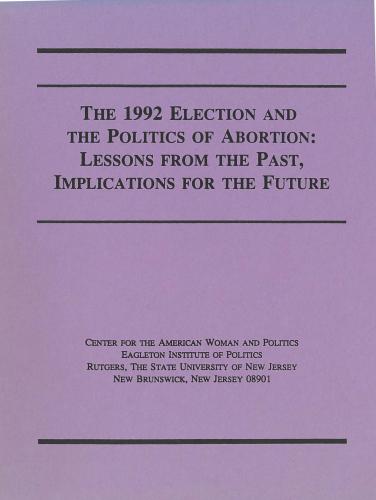
CAWP publishes The 1992 Election and the Politics of Abortion. The report provides an in-depth look at the effects of the abortion issue on several election contests in order to explain the role it played in the electoral process and to speculate about what electoral politics may hold for abortion policy and cultural politics in the future.
1994
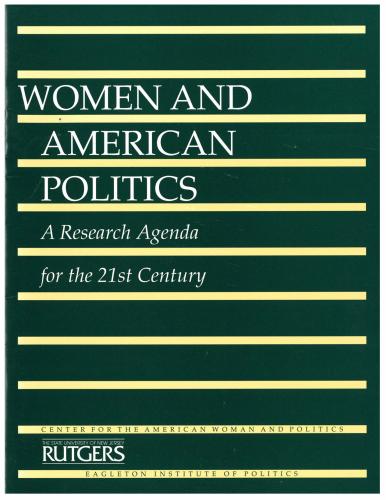
CAWP, with funding provided by the Ford Foundation, convenes a group of 79 scholars, researchers, political practitioners, and activists to help identify existing gaps in knowledge, discuss the reasons for the gaps, and imagine the kinds of research projects needed to address unanswered questions. The resulting publication, Women and American Politics: A Research Agenda for the 21st Century, provides a guide for research on women’s participation in American politics to lead us into the next century.
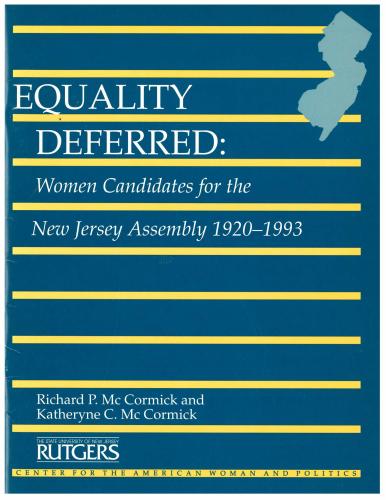
CAWP publishes Equality Deferred: Women Candidates for the New Jersey Assembly 1920-1993 by Richard P. and Katheryne C. McCormick, which explores the history of women's candidacies for the New Jersey Assembly and analyzes some of the reasons for the status of women as office-seekers in the state.
1995
Ruth B. Mandel becomes director of the Eagleton Institute of Politics, steps down as CAWP director. Debbie Walsh, who was the director of CAWP’s program for Women Public Officials, becomes acting director.
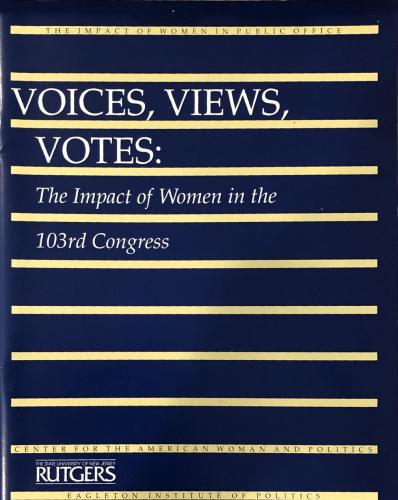
CAWP publishes Voices, Views, Votes: Women in the 103rd Congress. In the wake of the 1992 elections which saw the number of women in the US House almost double, CAWP asked the important question of what difference does women’s representation make. Funded by the Charles H. Revson Foundation, the report examines how the women in the 103rd Congress acted to shape the content of legislation, to build support for bills, and to create a political environment in which they could effect change.
CAWP convenes the fourth national Forum for Women State Legislators at the Hotel del Coronado near San Diego. At a time when more power and resources were shifting to the states, CAWP brought together hundreds of women state legislators from across the country to explore pressing policy questions. Sessions focused on a rage of policy areas including health care, education reform, violence against women, women and AIDS, and fiscal challenges confronting the states.
1997
CAWP in partnership with the NCSL Women’s Network convenes the second Forum for Newly Elected Women State Legislators. Once again, first term state legislators came together with veteran women legislators in order to learn how to be more effective public leaders. Program highlights included a briefing with the White House Office of Intergovernmental Affairs and a session with then Vice-President Al Gore.
1998
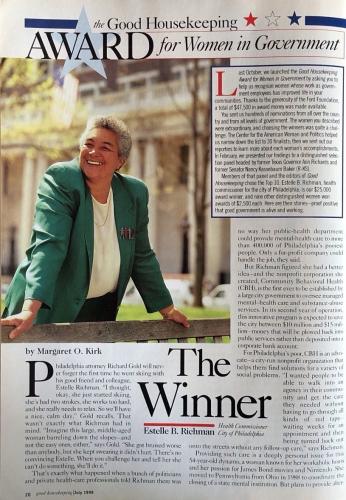
Sources: Good Housekeeping and Center for American Women and Politics.
From 1998 through 2005, Good Housekeeping magazine and CAWP, with funding from the Ford Foundation, present annual Good Housekeeping Awards for Women in Government. The awards recognize women elected or appointed officials, career civil servants, or members of the military whose work exemplifies how government improves people's lives.
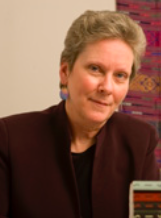
Mary Hawkesworth, then a professor of Political Science at the University of Louisville, becomes CAWP director. Debbie Walsh becomes the associate director.
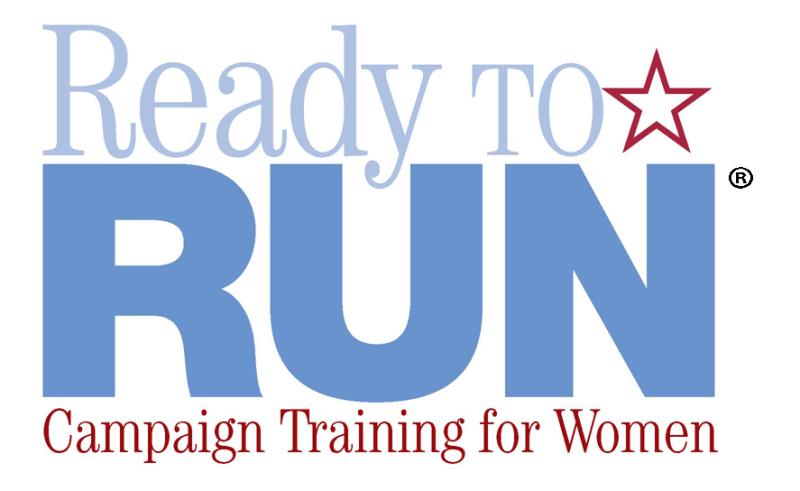
CAWP creates Ready to Run®, a non-partisan campaign training program to encourage and train women to run for elective office, position themselves for appointive office, work on campaigns, or become active in public life in other ways. Interest from other states in replicating the program leads to the Ready to Run® National Network, through which state partners modify CAWP’s model to fit their own political cultures. There are currently 25 members of the Ready to Run® National Network.
1999
CAWP creates the NEW Leadership® National Network, whereby network partners observe the flagship program, NEW Leadership® NJ, and then, with CAWP assistance, develop their own programs based on CAWP’s model. The initial grants to support this creation comes from the Kellogg Foundation. As of October 2021, there are 20 members of the NEW Leadership® National Network.
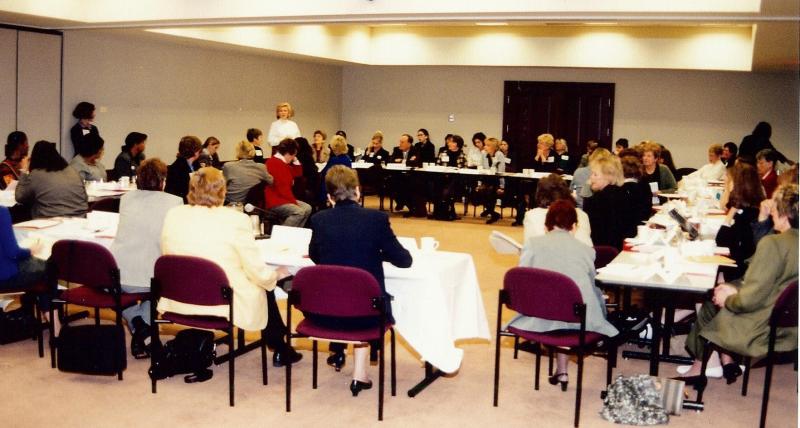
Participants at the 1999 term limits conference. Source: Center for American Women and Politics.
CAWP convenes a small working conference to to develop strategies to enable women to capitalize upon the political opportunities created by term limits. Drawing upon the expertise of women state legislators in twelve states where term limits had gone into effect prior to 2000 along with representatives of women’s advocacy organizations and scholars, participants explored means to maintain and enhance women’s political representation. (See Term Limits and the Representation of Women by Mary Hawkesworth and Katherine E. Kleeman and subsequent research by CAWP Senior Scholar, Professor Susan Carroll and Krista Jenkins).
2000
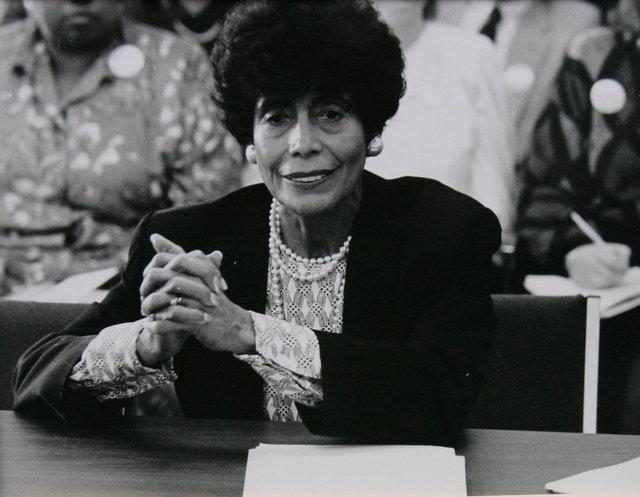
Since 2000, the New Jersey legislature has entrusted CAWP with the Senator Wynona Lipman Chair in Women’s Political Leadership, created to honor the legacy of the first African American woman in the New Jersey State Senate. Lipman Chair funding is used to inspire women to follow in the Senator’s footsteps. The Chair is established in 2000 when Governor Christine Todd Whitman signed legislation that had been sponsored by the legislative leaders in both parties and passed in both houses without opposition. In 2000, former US Representative Shirley A. Chisholm is the inaugural Lipman Chairholder.
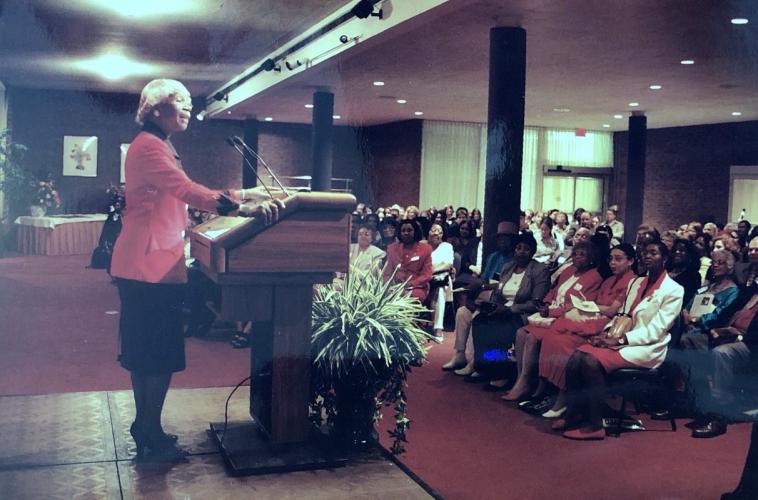
Congresswoman Shirley Chisholm gives the Lipman Chair lecture. Source: Center for American Women and Politics.
Former Congresswoman Shirley A. Chisholm is the inaugural Senator Wynona Lipman Chairholder at the Center for American Women and Politics.
2001
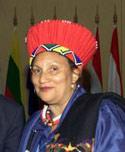
The Honorable Gertrude Fester, former Member of Parliament and commissioner for the National Gender Equality Commission of South Africa, serves as the 2001 Senator Wynona Lipman Chairholder.
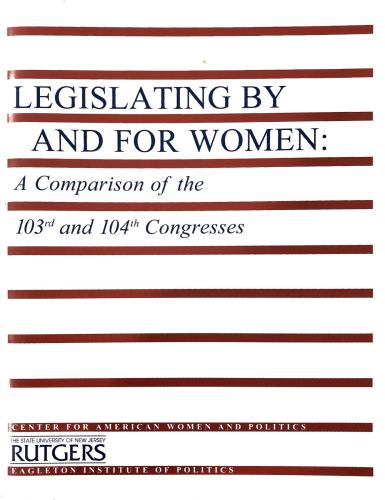
CAWP publishes Legislating By and For Women: A Comparison of the 103rd and 104th Congresses, which examines the political work of women legislators in the 103rd and 104th congresses as they attempted to transform their commitment to represent women into law.
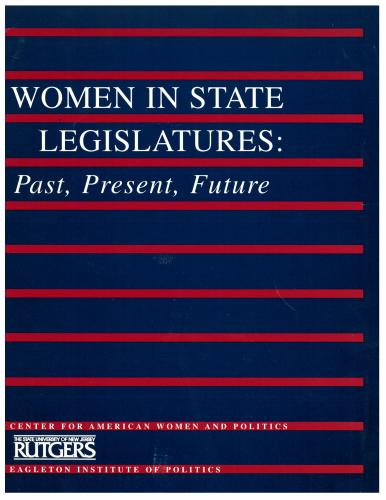
CAWP publishes Women State Legislators: Past, Present and Future, updating its findings on the impact of women in state legislatures. The report highlights how women and men in state legislatures are similar or different in terms of their attitudes and priorities as well as in terms of characteristics such as age, education and career background. The research was funded by the Barbara Lee Family Foundation.
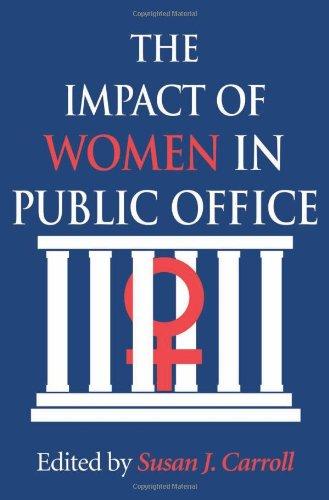
The Impact of Women in Public Office (Indiana University Press), edited by CAWP senior scholar Susan Carroll, is published. This book presents findings from studies by several different scholars about women public officials serving in various offices and locales. Although context and identity matter, the book also offers considerable evidence of gender-related impact.
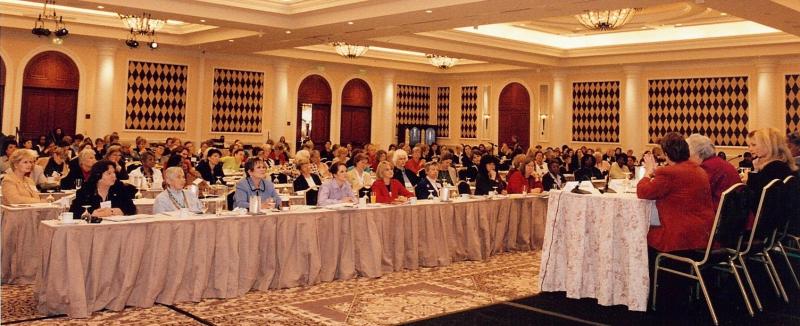
Participants at the 2001 Forum for Women State Legislators. Source: Center for American Women and Politics.
CAWP convenes the fifth and final national Forum for Women State Legislators in Dana Point, California. Hundreds of women state legislators gathered just two months after the September 11th attack. In the opening letter to participants we wrote, “While we always expected the Forum to be a time to explore the prospects for our democracy, that task seems even more urgent to us now. In particular, this meeting affords us a chance to reaffirm the importance of women’s voices in leadership at this critical moment in our nation’s history.”
2002
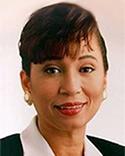
Alexis Herman, former US Secretary of Labor, is the Senator Wynona Lipman Chairholder from 2001-2002.
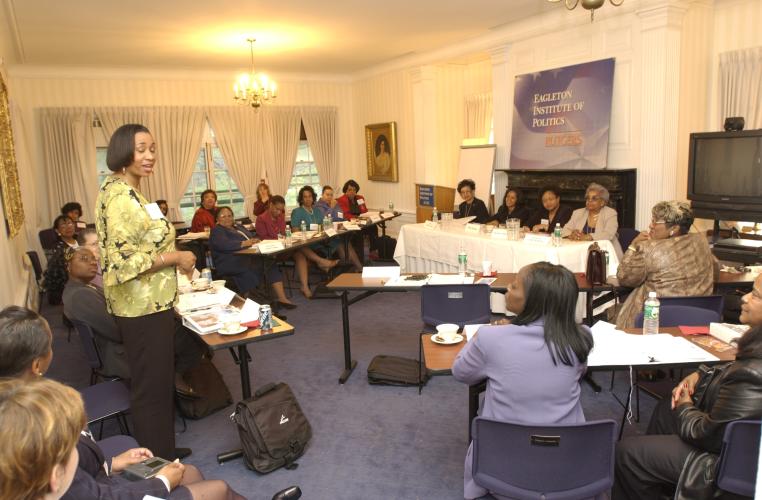
Participants at the 2002 NOBEL Women's Leadership Institute in New Brunswick, NJ.
Source: Center for American Women and Politics.
The National Organization of Black Elected Legislative Women (NOBEL Women) partners with CAWP to offer the Campaign Training and Public Policy Leadership Institute, a leadership training program targeted specifically towards Black women interested in seeking elected and/or appointive office. NOBEL Women and CAWP partner to host the institute again in 2008 and 2015.
CAWP releases the first New Jersey County Report card, ranking New Jersey's 21 counties on women's representation in county and local elected office. CAWP continues to release the report card annually to highlight women's representation in our home state. More details can be found in New Jersey Facts.
2003

Professor Patricia J. Williams, Columbia University School of Law, is the Senator Wynona Lipman Chairholder from 2002-2003.
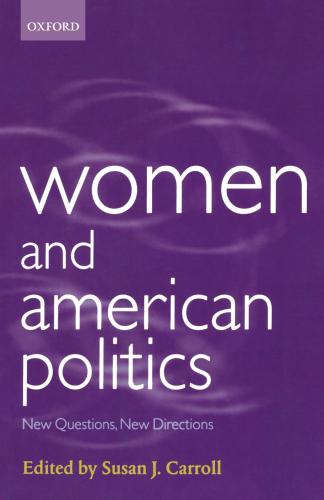
CAWP Senior Scholar Susan J. Carroll edits Women and American Politics: New Questions, New Directions, which presents a new research agenda, developed by leading scholars of American politics, suggesting directions that could fruitfully shape the study of women and American politics in the early twenty-first century. It contains reviews of existing research, but its primary focus is on important research questions, posing a challenge for the next generation of scholars.
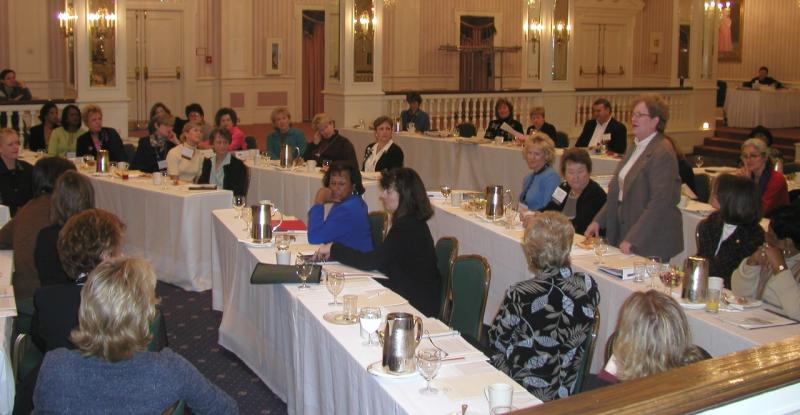
Participants at the Forum for Newly Elected Women State Legislators.
Source: Center for American Women and Politics.
CAWP convenes its third and final Forum for Newly Elected Women State Legislators. Program highlights include a White House Briefing with then Secretary of Labor Elaine Chao and Karen Hughes, Special Advisor to President George W. Bush.
2004
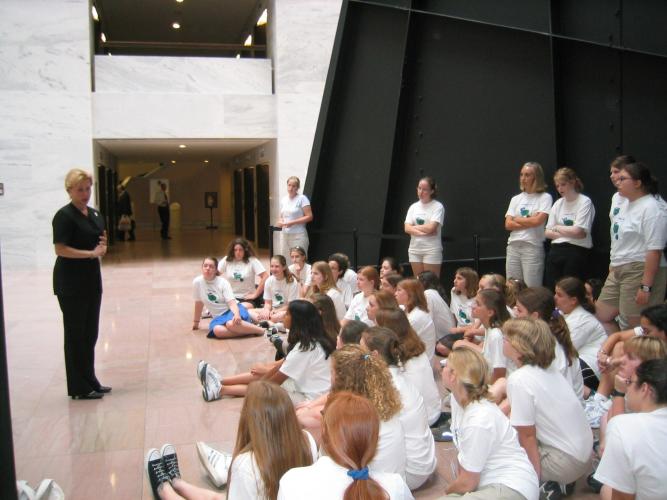
US Senator Mary Landrieu speaks with Girl Scouts in DC. Source: Center for American Women and Politics.
CAWP collaborates with Girl Scouts of the USA on Pathways to Politics, which brings teenage Girl Scouts from around the nation to CAWP for two weeks to learn about women's political participation. The program is offered in 2004, 2006, and 2008 under the national Girl Scout "Destinations" program.
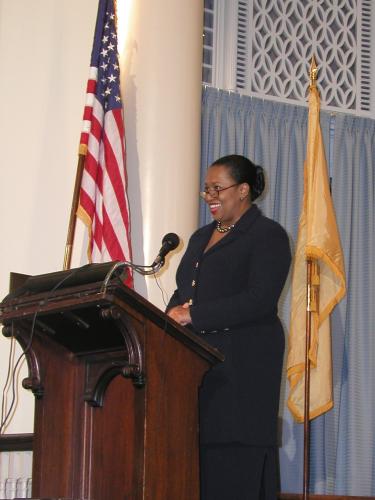
Ambassador Carol Moseley Braun, former US Senator and US Ambassador to New Zealand, is the 2004 Senator Wynona Lipman Chairholder.
2005
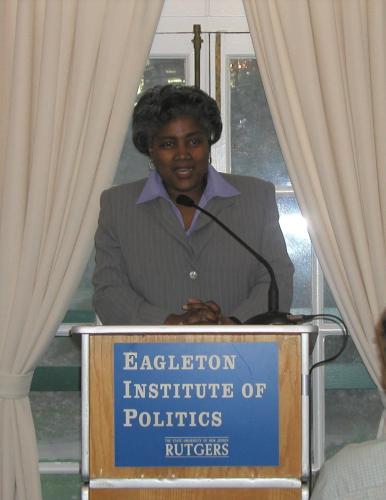
Political strategist Donna Brazile is the 2005 Senator Wynona Lipman Chairholder.
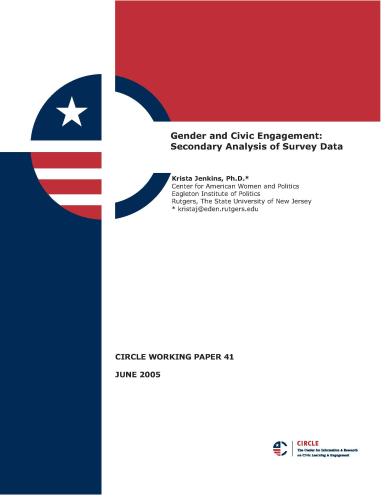
Gender and Civic Engagement: Secondary Analysis of Survey Data by Krista Jenkins is published by the Center for Information and Research on Civic Learning and Engagement (CIRCLE). This CAWP-funded study examines whether, and to what extent, gender is salient in the development of norms of citizen behavior and key precursors to citizen engagement.

Eagleton Institute director Ruth B. Mandel moderates a conversation with former governors Madeleine Kunin (VT), Jane Swift (MA), and Jeanne Shaheen (NH). Source: Center for American Women and Politics.
CAWP convenes a regional New England Forum for Women State Legislators.
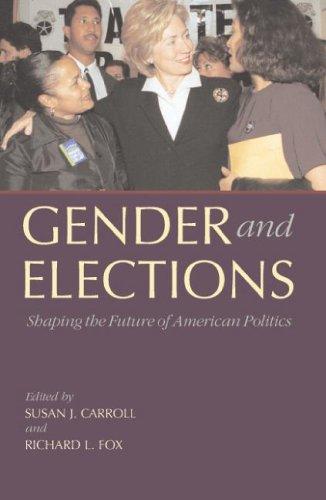
CAWP Senior Scholar Carroll co-edits, with Richard Fox of Loyola Marymount University, the first edition of Gender and Elections: Shaping the Future of American Politics (Cambridge University Press).
2006
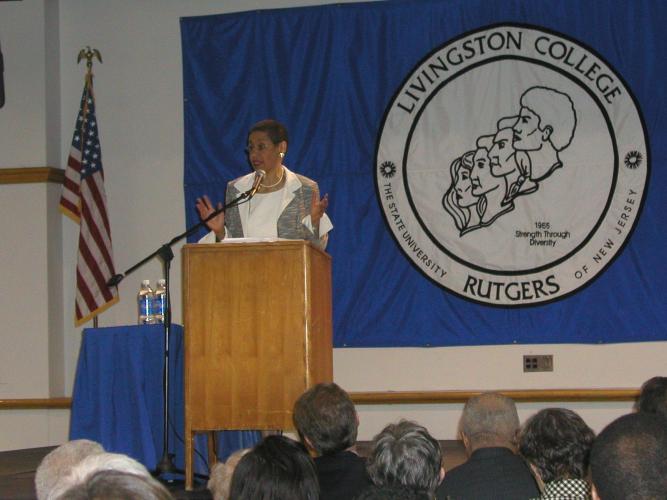
Congresswoman Eleanor Holmes Norton is the 2006 Senator Wynona Lipman Chairholder.
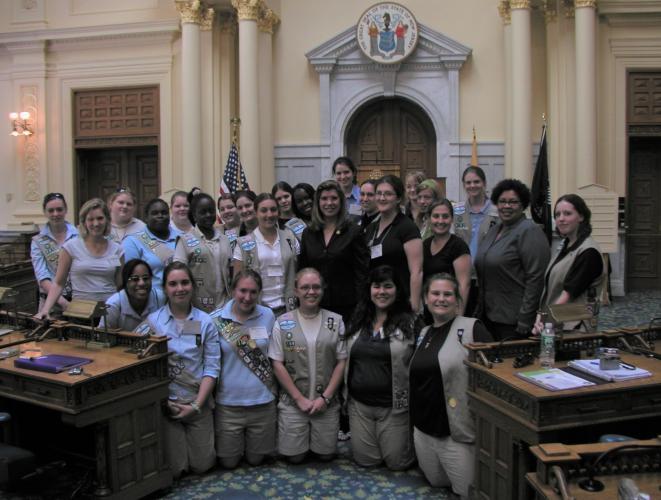
NJ Assemblywoman Nellie Pou with the Girl Scouts at the State House, Trenton. Source: Center for American Women and Politics.
CAWP collaborates with Girl Scouts of the USA on the second Pathways to Politics, which brings teenage Girl Scouts from around the nation to CAWP for two weeks to learn about women's political participation. The program is offered in 2004, 2006, and 2008 under the national Girl Scout "Destinations" program.
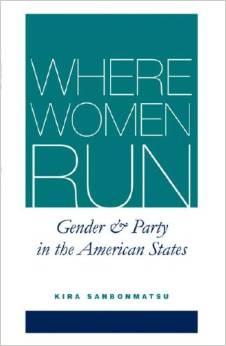
CAWP Senior Scholar Kira Sanbonmatsu publishes Where Women Run: Gender and Party in the American States (University of Michigan Press, 2006), looking at where and why women run and how parties can help or hinder them.
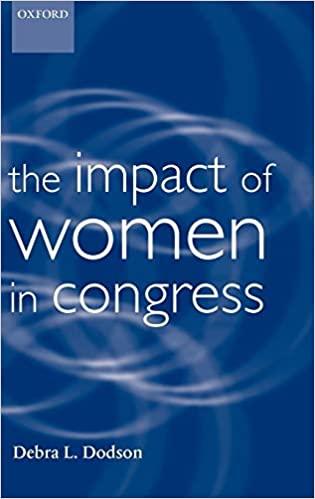
The Impact of Women in Congress (Oxford University Press, 2006) by Debra L. Dodson, former research faculty member at CAWP, is published. Drawing on hundreds of interviews and archival information from a previous CAWP study, the book explores the complex relationship between women’s presence and impact in two strikingly different, consecutive congresses.
2007
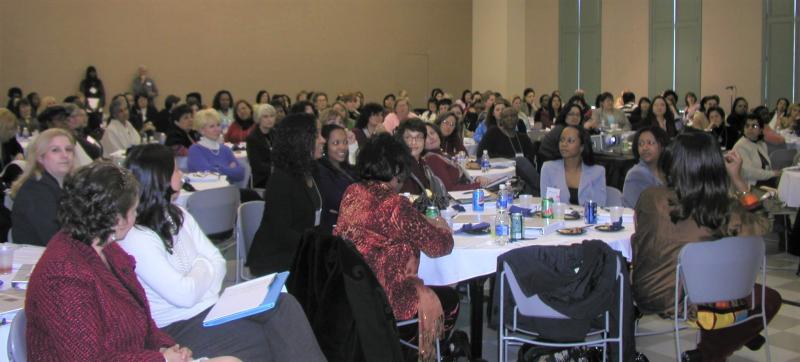
Participants at the 2007 Ready to Run® New Jersey program. Source: Center for American Women and Politics.
CAWP creates the Ready to Run® Diversity Initiative, a set of pre-conference programs aimed at increasing the participation of women of color in politics: Elección Latina; Run Sister Run: Women of the African Diaspora Changing the Political Landscape; and Rising Stars: Educating Asian American Women for Politics. The Diversity Initiative of Ready to Run® builds on a partnership with Latinas United for Political Empowerment (LUPE) to co-host Elección Latina, which began in 2004 in New Jersey. This initiative is supported by the Fund for New Jersey.
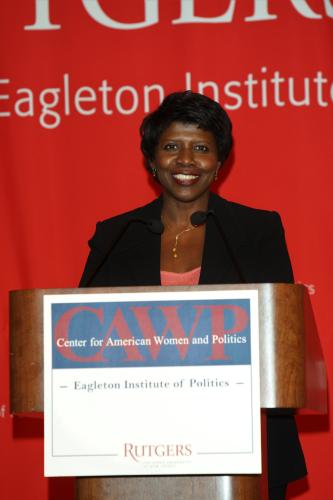
Political correspondent and TV news anchor Gwen Ifill is the 2007 Senator Wynona Lipman Chairholder.
2008
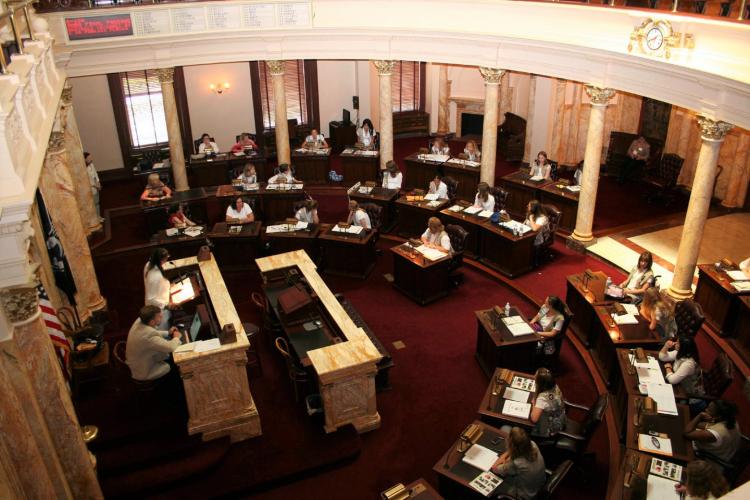
Girl Scouts participate in Pathways to Politics at the State House in Trenton. Source: Center for American Women and Politics.
CAWP collaborates with Girl Scouts of the USA on the third Pathways to Politics program, which brings teenage Girl Scouts from around the nation to CAWP for two weeks to learn about women's political participation. The program is offered in 2004, 2006, and 2008 under the national Girl Scout "Destinations" program.
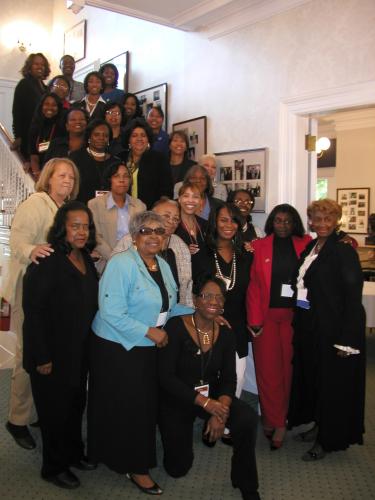
2008 NOBEL Women National Leadership Institute participants. Source: Center for American Women and Politics.
The National Organization of Black Elected Legislative Women (NOBEL Women) partners with CAWP for the second time to offer the National Leadership Institute, a leadership training program targeted specifically towards Black women interested in seeking elected and/or appointive office.
Michele Norris, host of NPR's All Things Considered, is the 2008-2009 Senator Wynona Lipman Chairholder.
2009
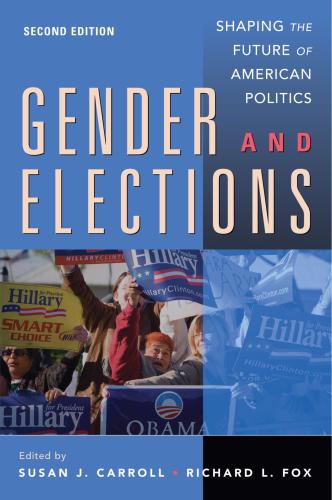
CAWP Senior Scholar Carroll co-edits, with Richard Fox of Loyola Marymount University, the second edition of Gender and Elections: Shaping the Future of American Politics (Cambridge University Press).
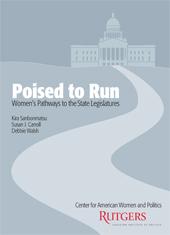
CAWP releases Poised to Run: Women's Pathways to the State Legislatures which presents the initial findings of a 2008 CAWP study that surveyed women and men in state legislatures about their routes to elective office. The research shows that:
- women need to be recruited
- political parties matter
- organizations help women run
- more women can run
- resources are important.
This research was made possible by the generous support of a leadership matching grant from the Barbara Lee Family Foundation, project grants from the Susie Tompkins Buell Foundation and Wendy Mackenzie, and other generous donors.
2010
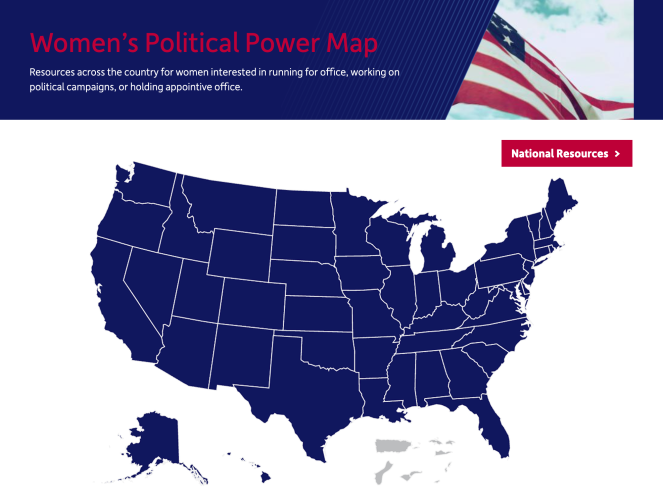
CAWP publishes an interactive national map that identifies resources available to women interested in running for office, working on political campaigns, or holding appointive office. The map, built with the support of the Hunt Alternatives Fund, helps potential officeholders find leadership development and campaign training programs, political action committees, and organizations and programs committed to supporting and encouraging women in politics.
2011
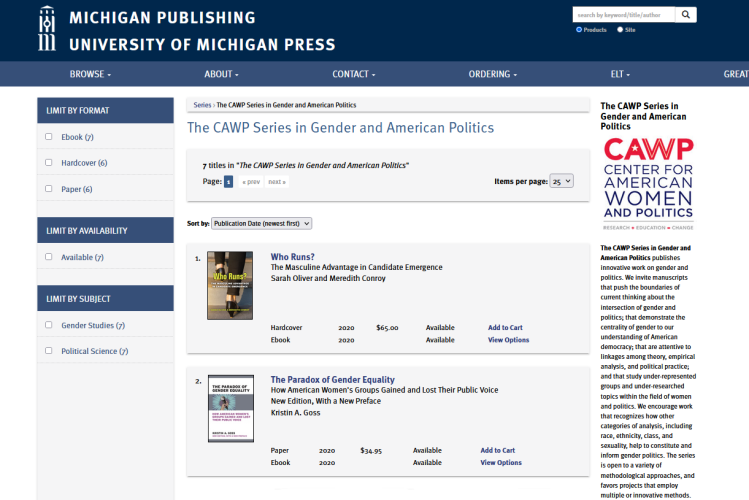
The first book in the CAWP Series in Gender and American Politics is published by the University of Michigan Press in association with the Center for American Women and Politics (CAWP) at Rutgers University. CAWP Senior Scholars Kira Sanbonmatsu and Susan Carroll are co-editors of the series. Books published in the series include:
- When Protest Makes Policy: How Social Movements Represent Disadvantaged Groups by S. Laurel Weldon
- The Paradox of Gender Equality: How American Women's Groups Gained and Lost Their Public Voice by Kristin A. Goss
- Gender in Campaigns for the U.S. House of Representatives by Barbara Burrell
- The Changing Face of Representation by Kim L. Fridkin and Patrick J. Kenney
- The Political Consequences of Motherhood by Jill Greenlee
- Who Runs? The Masculine Advantage in Candidate Emergence by Sarah Oliver and Meredith Conroy
Valerie B. Jarrett, Senior Advisor to President Barack Obama and Chair of the White House Council on Women and Girls, is the 2011 Senator Wynona Lipman Chairholder.
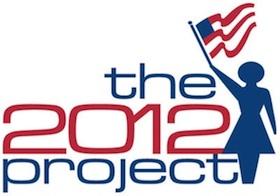
In partnership with political consultant Mary Hughes, CAWP launches The 2012 Project, a national, nonpartisan campaign to encourage record numbers of women to run for office. The project focuses on the 2012 election to take advantage of the once-in-a-decade opportunities created when all congressional and legislative districts are redrawn and women have the best opportunity to win open and new seats.
2012
CAWP senior scholar Kira Sanbonmatsu compiles a women and politics research inventory intended for political leaders, campaign professionals, journalists, scholars, and the general public—providing a systematic review of current and past research in the field of women and American politics. The goals are to identify strategies that can be used to elect more women and to determine whether there are important research questions yet to be addressed. The inventory and its 2015 update is made possible with support from the Hunt Alternatives Fund’s Political Parity Project.
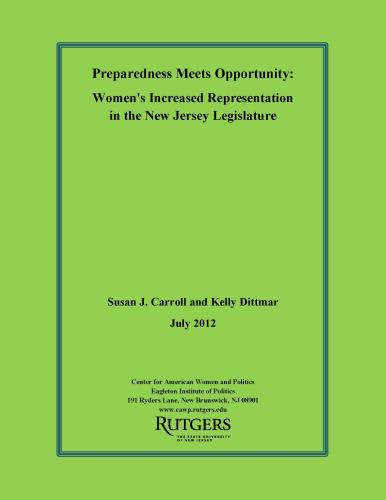
CAWP releases Preparedness Meets Opportunity: Women’s Increased Representation in the New Jersey Legislature, a research report which examines the factors that helped propel New Jersey’s state legislature from 43rd in 2004 to 10th in 2012 among all 50 states in the representation of women.
2013
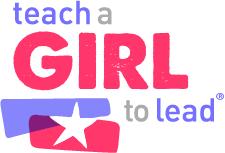
Responding to a call to action from President Barack Obama in a 2011 address to the UN General Assembly, CAWP establishes Teach a Girl to Lead® (TAG) in January 2013, which provides the tools and resources to help young people rethink leadership. The project is created to inspire girls and young women to follow in the footsteps of women leaders, past and present, and to make women’s political leadership visible to America’s youth, both boys and girls. Using a gender lens, TAG offers a fresh way of looking at public leadership that asks where women are, where they have been absent by design or by custom, and how we can reframe our ideas about who leads. Through a rich and growing set of online resources, TAG serves educators, leaders of youth-serving groups, media outlets that target young audiences, and parents.
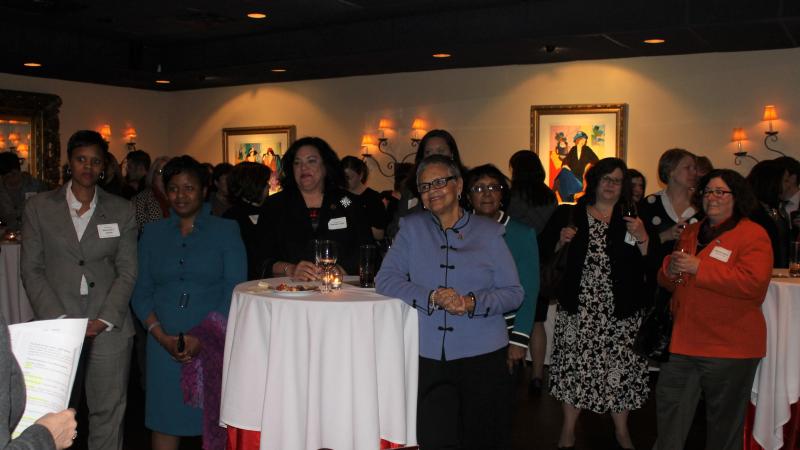
CAWP hosts its first annual “Women of Power” networking reception in Trenton. Co-hosted by all the women in the New Jersey legislature, proceeds from the event support CAWP’s nonpartisan public leadership programs for women in New Jersey, including Ready to Run® and NEW Leadership® New Jersey.
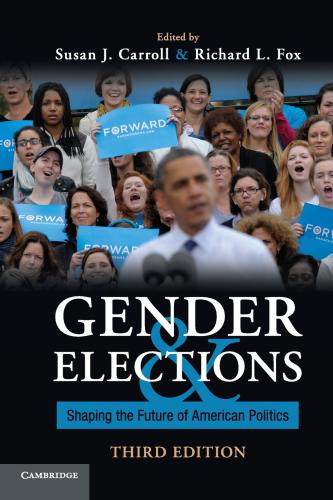
CAWP Senior Scholar Carroll co-edits, with Richard Fox of Loyola Marymount University, the third edition of of Gender and Elections: Shaping the Future of American Politics (Cambridge University Press).
Melody C. Barnes, former president and director of the White House Domestic Policy Council, is the 2013 Senator Wynona Lipman Chairholder.
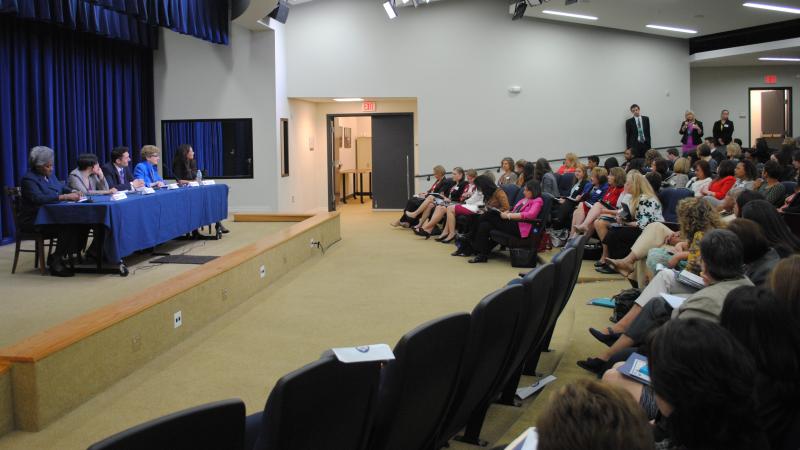
Participants at 2013 White House Conference on Girls' Leadership and Civic Education. Source: Center for American Women and Politics.
Responding to a call to action from President Barack Obama in a 2011 address to the UN General Assembly, CAWP works with the White House and the U.S. Department of Education to convene the White House Conference on Girls’ Leadership and Civic Education. The April 2013 conference is one element of the federal government’s commitment to promote political and economic equality for women and girls through a new Equal Futures Partnership.
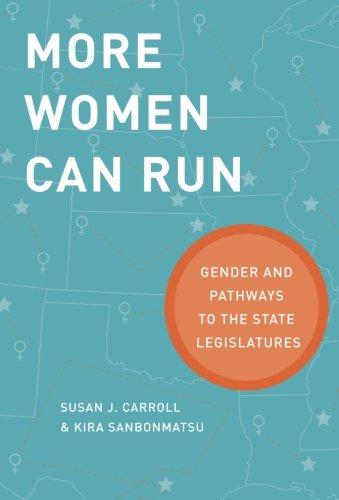
More Women Can Run: Gender and Pathways to the State Legislatures (Oxford University Press, 2013) by CAWP Senior Scholars Susan Carroll and Kira Sanbonmatsu is published. The book draws on CAWP surveys of women legislators conducted in 1981 and 2008 and follow-up interviews after the 2008 survey to extend our understanding of gender differences in pathways to the legislatures. Carroll and Sanbonmatsu offer possible explanations and provide insight into new strategies for political practitioners concerned about women's political equality.
2014
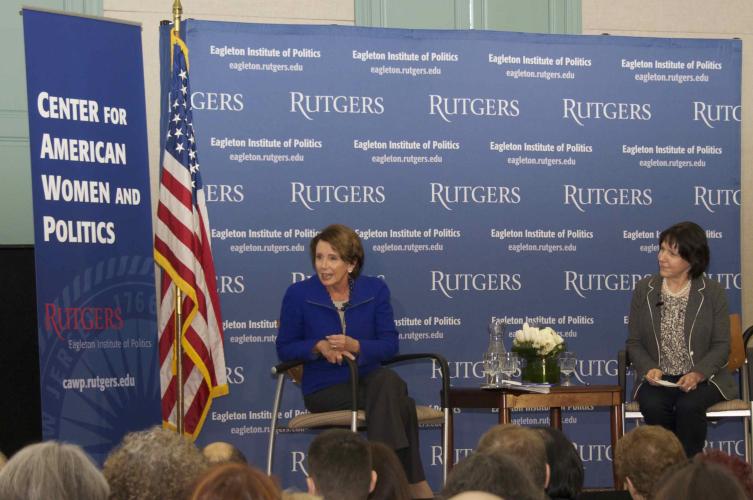
US House Democratic Leader Nancy Pelosi and CAWP director Debbie Walsh. Source: Center for American Women and Politics.
CAWP hosts a public lecture by U.S. House of Representatives Democratic Leader Nancy Pelosi on the Rutgers University-New Brunswick campus. Pelosi shares her insights on women's legislative leadership and her history-making path as the first woman speaker of the U.S. House.
Congresswoman Donna Edwards is the 2014 Senator Wynona Lipman Chairholder.
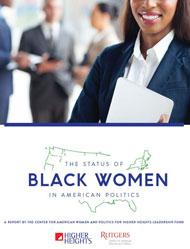
In partnership with Higher Heights, CAWP publishes its first report on the status of Black women in American politics. Higher Heights and CAWP continues to issue status reports in 2015, 2017, 2018, 2019, and 2021.
2015
NPR host and commentator Michel Martin is the 2015 Senator Wynona Lipman Chairholder.
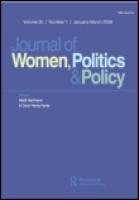
"Electing Women of Color: The Role of Campaign Trainings" by CAWP Senior Scholar Kira Sanbonmatsu is published in the Journal of Women, Politics, and Public Policy. Presenting a case study of CAWP's New Jersey Ready to Run® Diversity Initiative, a campaign training designed to attract more women of color to the political process, the article examines perceptions of the barriers facing women of color and identifies the mechanisms by which the Diversity Initiative seeks to help women, shedding light on the status of women candidates of color and the role of campaign trainings more generally. For political practitioners, the article suggests the utility of creating programs for women of color.
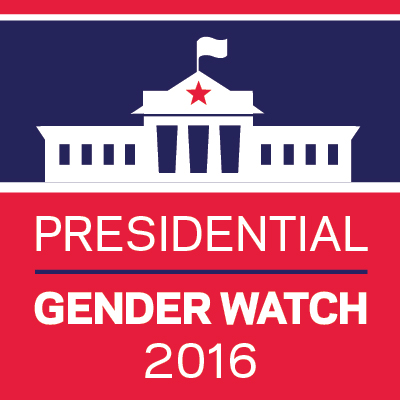
CAWP teams with the Barbara Lee Family Foundation to create Presidential Gender Watch 2016, a nonpartisan project to track, analyze, and illuminate gender dynamics in that election. The initiative draws on the research and expertise of both partner organizations, as well as other experts, to further public understanding of how gender influences candidate strategy, voter engagement and expectations, media coverage, and electoral outcomes in the race for the nation’s highest executive office.
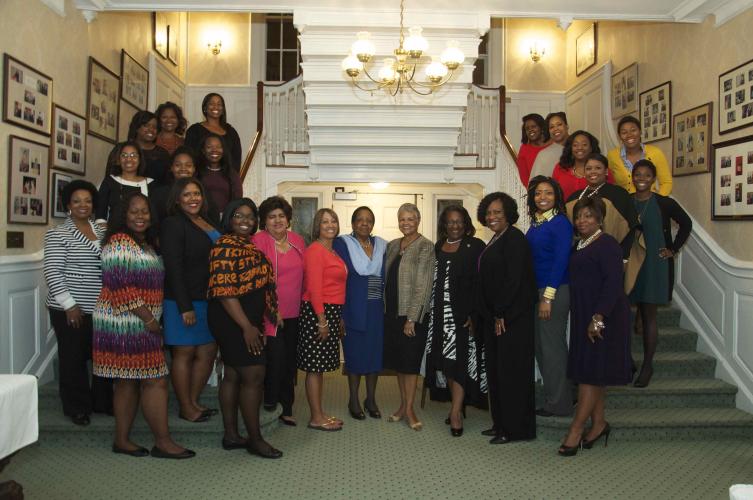
2015 NOBEL Women National Leadership Institute participants with US Congresswoman Bonnie Watson Coleman (NJ). Source: Center for American Women and Politics.
The National Organization of Black Elected Legislative Women (NOBEL Women) and CAWP partner for the third time to offer the National Leadership Institute, a leadership training program targeted specifically towards Black women interested in seeking elected and/or appointive office.
2016

As part of Teach a Girl to Lead®, CAWP sends a copy of Grace for President to every woman state legislator, who will read the story to girls and boys in their districts. After reading the story to children, the lawmakers donate their copies to school libraries. TAG continues this project every year. The project has been possible with the support of the Hess Family Foundation and the Honorable Connie Hess Williams.
CNN Senior Political Reporter Nia-Malika Henderson is the 2016 Senator Wynona Lipman Chairholder.
2017
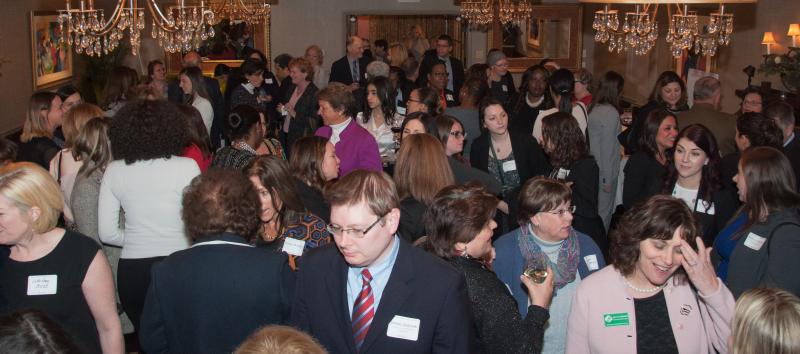
Attendees at the 2017 Women of Power reception. Source: Center for American Women and Politics.
The fifth annual “Women of Power” networking reception co-hosted by Congresswoman Bonnie Watson Coleman, Lieutenant Governor Kimberly Guadgano, and all the women in the New Jersey legislature is held in Trenton. Held every February, Women of Power supports CAWP's education programs in New Jersey, including Ready to Run® and NEW Leadership®.
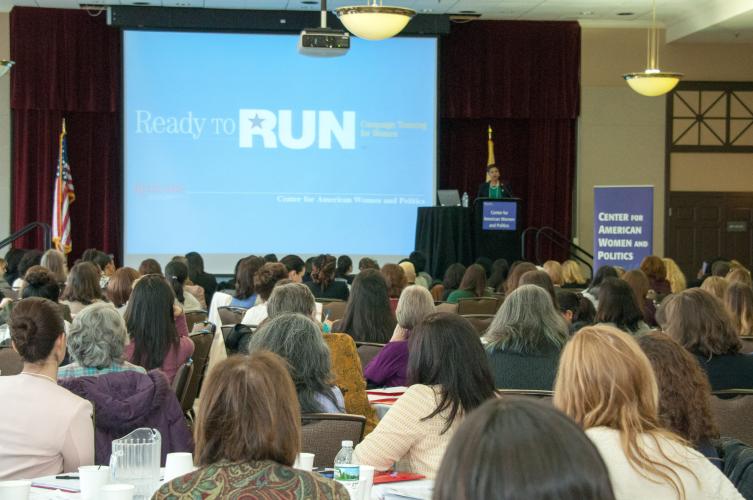
Participants at the 2017 Ready to Run® New Jersey program. Source: Center for American Women and Politics.
Several hundred women attend CAWP’s annual Ready to Run® New Jersey campaign training program, the first time in the program’s history that it is sold out due to space considerations. Ready to Run® partners around the country report the same high levels of interest and engagement in their Ready to Run® programs.
MSNBC national correspondent Joy Reid is the 2017 Senator Wynona Lipman Chairholder.
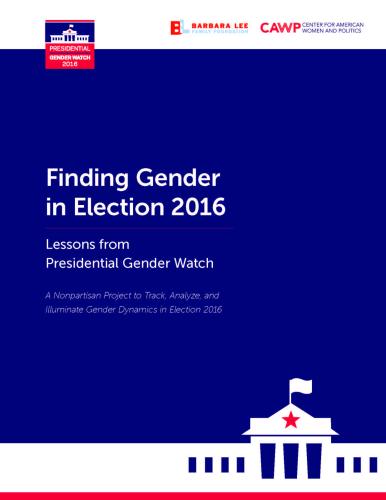
CAWP, with the Barbara Lee Family Foundation, releases Finding Gender in Election 2016: Lessons from Presidential Gender Watch. The public report draws from the project Presidential Gender Watch 2016 to summarize key gender dynamics that emerged in the 2016 presidential election.
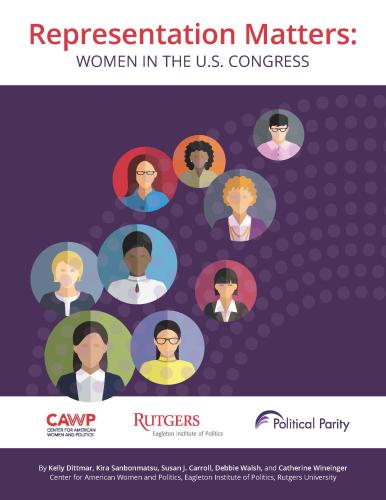
CAWP releases Representation Matters: Women in the U.S. Congress, a report drawing from CAWP’s research on the impact of women’s representation in the 114th Congress. With support from the Hunt Alternatives Fund, CAWP’s research team conducted interviews with 83 women in the U.S. Congress. The report is a precursor to the more extensive account of research findings later published as a book.
April Ryan, White House correspondent and CNN political analyst, is the 2017-2018 Senator Wynona Lipman Chairholder.
2018
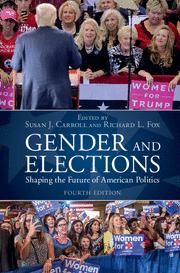
CAWP Senior Scholar Susan Carroll co-edits, with Richard Fox of Loyola Marymount University, the fourth edition of Gender and Elections: Shaping the Future of American Politics (Cambridge University Press).
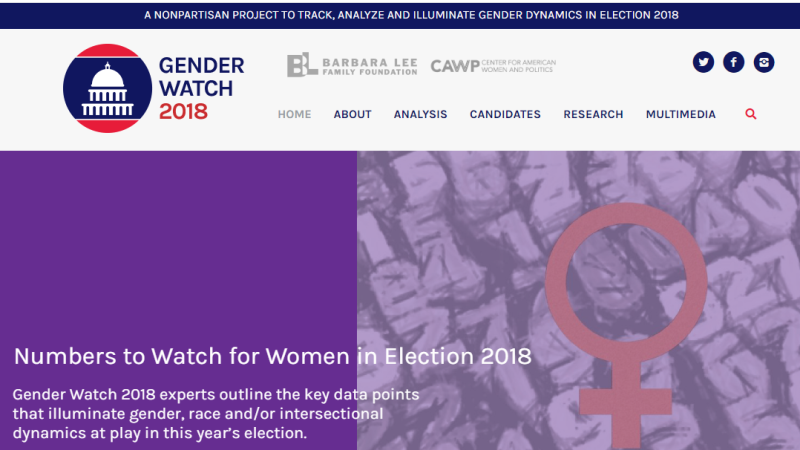
CAWP teams with the Barbara Lee Family Foundation to create Gender Watch 2018, a nonpartisan project to track, analyze, and illuminate gender and intersectional dynamics in that election.
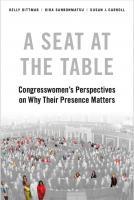
A Seat at the Table: Congresswomen’s Perspectives on Why Their Presence Matters (Oxford University Press, 2018) by CAWP scholars Kelly Dittmar, Kira Sanbonmatsu, and Susan Carroll is published. Drawing on personal interviews with over three-quarters of the women serving in the 114th Congress (2015-17), the book looks at what motivates these women's legislative priorities and behavior, details the ways in which women experience service within a male-dominated institution, and highlights why it matters that women sit in the nation's federal legislative chambers.
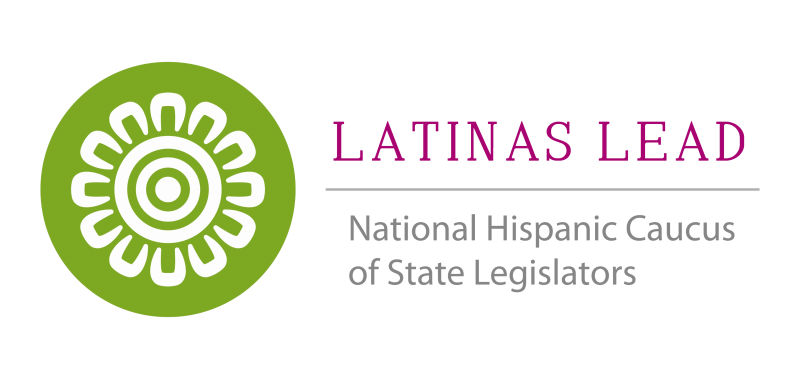
Source: National Hispanic Caucus of State Legislators.
CAWP partners with the National Hispanic Caucus of State Legislators to co-host Latinas Lead, a leadership academy which aims to boost the numbers of Latina state legislators nationwide and to ensure that incumbent Latina legislators have the tools they need to reach leadership positions within their legislatures as well as higher office through campaign training, leadership development, and public policy education. The program has been held annually since its inauguration.
2019
Donna Brazile, Yolanda Caraway, Leah Daughtry, and Minyon Moore, political strategists and co-authors of For Colored Girls Who Have Considered Politics, are the 2019 Senator Wynona Lipman Chairholders.
CAWP partners with the State Legislative Leaders Foundation (SLLF) to host the Women in State Legislative Leadership institute.
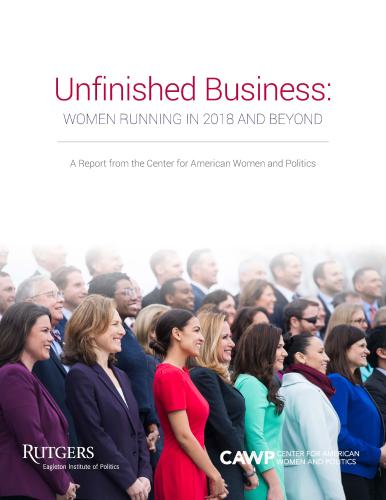
CAWP releases Unfinished Business: Women Running in 2018 and Beyond, a report and microsite to analyze what happened for women in the 2018 elections, as well as provide a review of scholarship to provide insights on women’s paths to office, style of running/campaigning, barriers to overcome, and sites for future study.
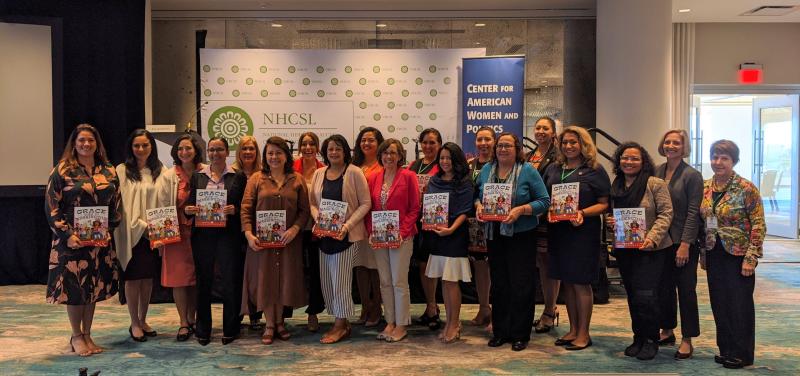
State legislators at the Latinas Lead Academy. Source: Center for American Women and Politics.
CAWP partners with the National Hispanic Caucus of State Legislators for the second time to co-host Latinas Lead, a leadership academy which aims to boost the numbers of Latina state legislators nationwide and to ensure that incumbent Latina legislators have the tools they need to reach leadership positions within their legislatures as well as higher office through campaign training, leadership development, and public policy education. The second program was held in San Juan, Puerto Rico in conjunction with NHCSL's annual conference.
2020

CAWP launches the CAWP Women Elected Officials Database, a first-of-its-kind tool for exploring and analyzing women’s current and historical representation in the U.S. political system. The CAWP Women Elected Officials Database includes every woman officeholder in U.S. history at the federal, statewide elected executive, and state legislative levels. This tool expands on the officeholder database that CAWP long kept and shared with researchers, and, crucially, transforms it into a searchable, online format for public access.
ABC News Correspondent Linsey Davis is the 2020 Senator Wynona Lipman Chairholder.

CAWP releases the first in a series of CAWP reports on money, gender, and politics at the state level, The Money Hurdle in the Race for Governor. This research is made possible through a collaboration between CAWP and the National Institute on Money in Politics (NIMP).
2021
CAWP issues its first CAWP Research Grants to nine research projects that will identify and address barriers and opportunities to women’s political power. These grants are funded by Pivotal Ventures.
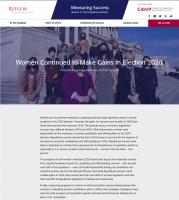
CAWP releases Measuring Success: Women in 2020 Legislative Elections, a report and microsite to analyze what happened for women in 2020 legislative (congressional and state legislative) elections, including analyses of the numbers, women’s paths to office and campaign strategy, and what to watch for in upcoming elections

For the first time, CAWP releases a nationwide report with data on women’s representation at the municipal level. This data, drawing on information on incorporated cities and towns with populations over 10,000, per the U.S. Census, punctures a long-held myth that women are more abundantly represented in local politics than their share of seats in state and federal offices. In reality, women’s representation in municipal office – mayoral offices and city councils or similar bodies – is analogous to their representation at other levels: women hold less than one-third of seats in municipal governments nationwide. This report will be released annually with new data.
Thanks to the lobbying efforts from members of the Bipartisan Coalition for Women’s Appointments, CAWP receives a state appropriation to create the first-ever New Jersey database of appointed officials, tracking appointees by gender and race/ethnicity and a new database of elected officials by race and ethnicity. The New Jersey Senate passes a bill co-sponsored by Senators Loretta Weinberg and Linda Greenstein directing CAWP to conduct this work with the support of the governor and secretary of state’s offices. (Legislation is pending in the Assembly as of December 2021.)
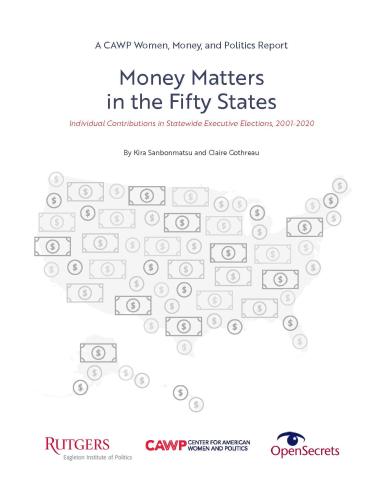
CAWP publishes Money Matters in the Fifty States, the second report in a series on money, gender, and politics at the state level.
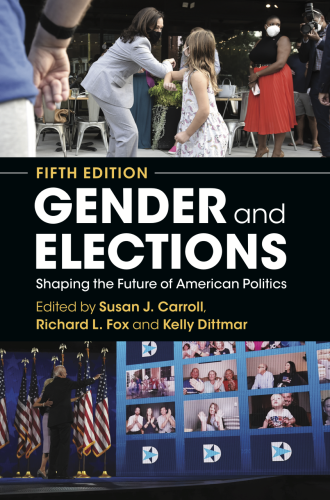
The fifth edition of Gender and Elections: Shaping the Future of American Politics is published by Cambridge University Press. Edited by CAWP Senior Scholar Susan J. Carroll, Richard L. Fox of Loyola Marymount University, and CAWP Scholar and Director of Research Kelly Dittmar, the latest volume offers a multi-faceted account of the role of gender in the electoral process through the 2020 elections. It includes essays from scholars across the country, including Wendy G. Smooth, Rosalyn Cooperman, Anna Sampaio, and Dianne Bystrom, as well as pieces from Carroll, Dittmar, and CAWP Senior Scholar Kira Sanbonmatsu.


